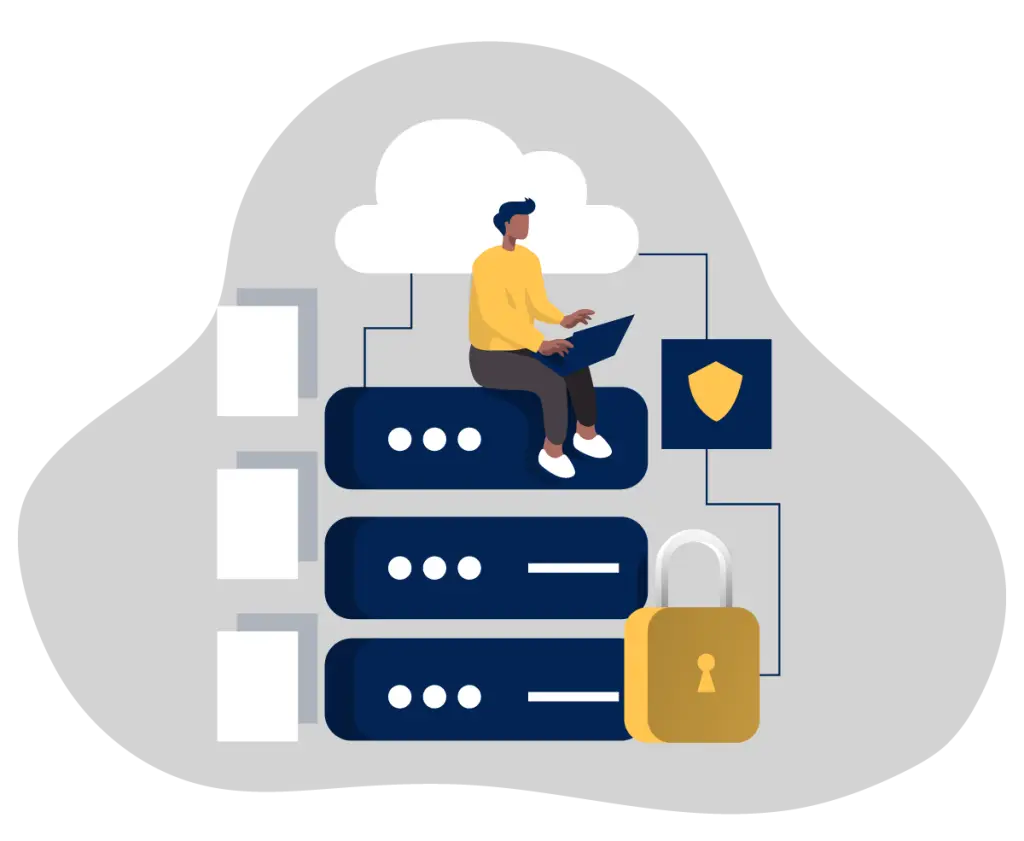Cybersecurity
& the Law
Understand cyber law, manage risks & navigate crises
In partnership with:

Cybersecurity & the Law: Risk Management in the Digital Economy
In today’s digital landscape, the risks to cybersecurity are ever-present and constantly evolving. As cyber threats become more sophisticated, the need for corporate leaders and legal professionals well-versed in the intricacies of cybersecurity and AI is paramount.
Our certificate program, Cybersecurity & the Law: Risk Management in the Digital Economy, launched in collaboration with Lincoln Alexander School of Law at Toronto Metropolitan University, is your shield against these risks. We empower our participants to navigate the legal complexities of cybersecurity, assess and manage risks, and provide expert guidance in crisis situations.
Upcoming Program Details: Sept. 12, 19, 26 & Oct. 3, 10 2025 I 5 weeks I Part-time I Hybrid
Who should attend?
Senior Leaders and Managers, Technology Team Leads, and In-House / Corporate Counsel
This certificate program is aimed at business professionals and mid- and senior-level lawyers who hold primary responsibility for advising corporations about integrating cybersecurity best practices into operations. This program fosters a deeper dive into understanding the legal implications of client cyber risks, including case law, and regulatory landscapes. Participants learn how to deliver legal advice during cybersecurity incidents and gain expertise in data protection mechanisms, crisis management and post-incident analysis.
What you’ll learn
Upon completion, participants will have the knowledge and key competencies to support their ability to provide foundational advice on legal cybersecurity and privacy issues – from prioritizing operational action plans that help to avoid legal consequences, to mitigating liability while recovering from a cyber incident. Participants will be equipped to rapidly acquire and assess mission-critical information, formulate and implement action plans, effectively evaluate success and adapt accordingly, and function confidently as organizational advisors.
Understanding Technology in Contemporary Business
Mode of Delivery: In-Person / Virtual
This module concentrated on understanding the vital intersection of technology and contemporary business. Participants delved into the client-based approach to cybersecurity needs, grasped the relevance of organizational missions and governance, explored technology infrastructure and data types, and analyzed threat and risk assessments. Interactive lectures, group activities, and scenario-based exercises enabled participants to define business contexts, map technology, and provide legal insights, strengthening their ability to align technology with legal considerations
Assessing Legal Risks in Cybersecurity
Mode of Delivery: Virtual
Online Module 2 zeroed in on assessing legal risks in the realm of cybersecurity. Participants identified legal implications related to client cyber risk, examined the information/data regulatory landscape encompassing privacy laws and data protection, and learned to provide relevant legal advice based on an organization’s cybersecurity posture. Through pre-recorded sessions, panel discussions, and case studies, attendees gained a comprehensive understanding of legal intricacies, enabling them to offer informed guidance.
Privacy, Data, and Information Protection
Mode of Delivery: Virtual
In Module 3, the focus shifted to privacy, data, and information protection within the digital economy. Participants examined various types of data and their protection, explored regulatory requirements, and engaged in a case study exercise. By completing privacy impact assessments and evaluating compliance, participants developed the skills needed to advise organizations on data protection while navigating complex regulatory landscapes.
Supporting a Client in Crisis: Advising in Cybersecurity Incident Response
Mode of Delivery: Virtual
Module 4 delved into the crucial role of legal counsel in supporting clients during cybersecurity crises. Participants learned about crisis management and communications, explored tools and techniques for advising clients in crisis, and engaged in a tabletop exercise to simulate a basic breach scenario. By understanding the incident response process, participants became better prepared to deliver legal advice and manage post-incident legal issues effectively.
Symposium: Legal and Ethical Challenges and Opportunities of AI in Cybersecurity
Mode of Delivery: In-Person (Ted Rogers School of Management) or Zoom
In this symposium, participants took a deep dive into AI in cybersecurity, examined the legal and ethical challenges, and explored how to integrate this emergent technology into practice. Participants gained practical insights through synthesizing exercises. Speakers included: John Comacchio, SVP and CIO, Teknion Sam Ip, Partner, Osler, Hoskin & Harcourt LLP Kristina Nauss, Chief Privacy Officer, Holt Renfrew Jake Effoduh, Assistant Professor Lincoln Alexander School of Law Cherlene Tay, Manager, Digital Governance Standards Development, Digital Governance Council
This symposium is accredited by the Law Society of Ontario for 5.5 hours of Substantive Content and 1 hour of EDI Professionalism Content.
Program Chairs

Imran Ahmad
Partner, Head of Technology, Co-Head of Information Governance, Privacy and Cybersecurity
Norton Rose Fulbright Canada LLP

Noemi Chanda
Partner, Data Protection and Privacy Leader, Cyber Risk
Deloitte LLP
Program Speakers

Ali Arasteh
Head of Canada
Mandiant Consulting Services

Jason Ball
Vice President, Legal
Rogers Communications

Ben Davies
Chief Information Officer
Vector Institute

Jake Effoduh
Assistant Professor
Lincoln Alexander School of Law

Adam Evans
Senior Vice President and CISO
RBC

Kathrin Gardhouse
AI Governance Research Fellow
The Future Society

S/Sgt. Pierre-Marc Grondin
RCMP

Sunny Handa
National Practice Group Leader, Technology and Communications
Blakes

Anthony Hémond
Senior Privacy Counsel
Air Canada

Vivek Khindria
President and Principal Consultant
Risk Embrace Inc.

Jasbir Kooner
Director, IT - Artificial Intelligence and Cybersecurity
Englobe Corp

Mona Kumar
Senior Legal Counsel
Canada Mortgage and Housing Corporation (CMHC)

Michael Laing
CISO Rogers Bank, Senior Director of Cyber Security, Director of Cyber Security
Rogers Communication

Dr. Avner Levin
Professor
Lincoln Alexander School of Law and the business program at Ted Rogers School of Management

Charles Muggeridge
Senior Vice President
FleishmanHillard Highroad

Sarah Muttitt
Vice President, Information Management and Technology, and CIO
Hospital for Sick Children

Iain Paterson
Chief Information Security Officer
WELL Health Technologies Corp.

Detective S/Sgt. Melanie Power
Manager, Cybercrime Investigations Team
OPP

Ruth Promislow
Partner
Bennett Jones LLP

Molly Reynolds
Partner
Torys LLP

Daanish Samadmoten
Chief Privacy Officer
Fasken

Dr. Jeff Schwartzentruber
Staff Machine Learning Scientist
eSentire

Roohie Sharma
Legal Counsel (Privacy)
The Hospital for Sick Children

Manpreet Singh
Norton Rose Fulbright
What you'll gain on completion
LSO Accreditation
The Lincoln Alexander School of Law is an accredited provider with the Law Society of Ontario. A total of 35 hours and 45 minutes can be claimed.
This program contains:
- Substantive Content – 32 hours and 45 minutes
- Professionalism Content – 2 hours
- EDI Professionalism Content – 1 hour

Certificate of Program Completion
Attendees will receive a certificate upon completion of this program. Participants must attend all program modules and participate in small group and online activities to receive their certificate.
Group Discounts
Group discounts are available. Organizations sending 2-10 attendees are entitled to a 10% discount. For larger groups please get in touch for available discounts. If you wish to receive an invoice or to register as a group, please contact: LincolnLawPD@torontomu.ca.
Refund Eligibility
- Full Refund: A full refund is available up to three weeks before the program start date.
- Partial Refund: After the three-week period, a refund minus a $300 processing fee is available until the start date.
- No Refund: No refunds are available once the program has begun.







